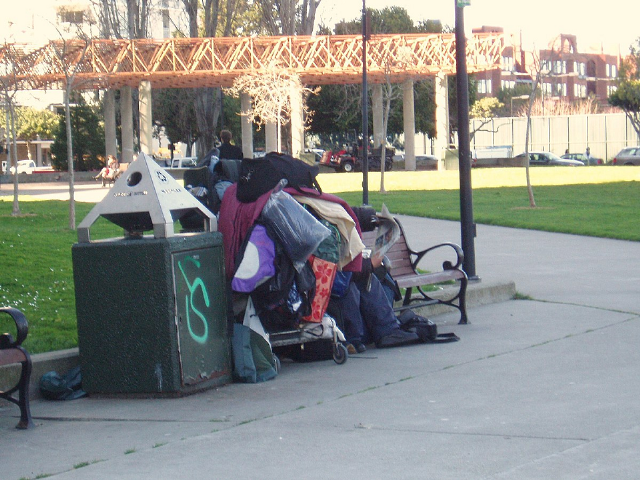Honoring President Carter by reducing American homelessness
The death of President Carter is an excellent occasion to examine the unique American problem of homelessness. Carter’s most famous charity and outlet for service work was Habitat for Humanity. Carter worked with the group for 35 years and helped the organization toward the construction of more than 4,000 homes around the world. His hard work in service epitomized his Christian convictions and the model of ethics he sought to set for the nation.
Despite decades of work, homelessness in the United States has increased to record levels in the past year -- higher than levels during the 2008 recession. Homelessness has increased by roughly 20% for the past two years. More than 650,000 Americans are homeless in the current data. It is the fault of our intellectual culture that promotes misunderstanding both about the problem and causes of homelessness along with the evident solutions.
The empiricism of federalism is an ideal intellectual bank from which we can draw the policy resources to reduce homelessness. The Tenth Amendment of the U.S. Constitution designates powers not reserved to the central government to the states. The federalism laboratory provides rich data at all times for Americans to discover better public policy. Our federalism laboratory provides us with a clear political set of referents for the problem: California and New York. These two states make up more than 1/3 of the homelessness population in the United States. One-fourth of all homeless people live in either Los Angeles or New York City. More specifically, per capita homelessness is highest in: 1) Washington D.C. (72.5), 2) New York (52.7), 3) Vermont (50.9), and 4) California (46.6). The parenthetical numbers are the number of homeless people per 100,000. It is important to realize that policymaking is important as a cause of homelessness. The state of Virginia has one of the lowest homelessness rates of any U.S. state despite its northern cousin that stands astride the worst homelessness crisis -- Washington, D.C. Even liberal journalist icon Nicholas Kristof has lamented the rise of homelessness in liberal enclaves -- though he falsely rationalizes that it is a West Coast problem and not an East Coast problem. Homelessness among veterans has declined steadily in the U.S. since 2011 -- being cut by more than half. Unfortunately, in 2023 that number began to rapidly rise once again. Though homelessness increases are driven by big blue cities, there are exceptions to this national rule.
Texas cities, despite being among the nation’s largest (Houston, Dallas, San Antonio, Fort Worth, and Austin), have succeeded in reducing homelessness in the past two years. These successes come amidst a wave of illegal immigration where the state served as a primary doorstep for border crossings among millions in the past four years. Dallas is a rare major city with a Republican mayor. Eric Johnson switched parties from Democrat to Republican in 2023. While the nation has experienced an 18% increase in homelessness from 2022 to 2024, Dallas has experienced a 16% decline. This success is an important step toward a 2026 goal of cutting homelessness in the city by 50%. In May of this year, the mayor was honored by a declaration from the Federal government that the city had ended homelessness among veterans, despite the growing national trend. In 2023, Houston achieved the lowest homeless persons rate of any major U.S. city (50 per 100,000). Austin, despite its liberal governance, also achieved reductions in homelessness. The marked contrast between California cities and Texas cities makes solution-driven policymaking evident.
The political policy styles that hinder affordable housing include rent controls and environmental regulation. The effort to mandate inexpensive housing alongside massive increases in demand for housing is a prime recipe for homelessness increase. Environmental policies such as California’s ban on natural gas stoves is illustrative of a larger pessimist framework of policymaking that views human habitation as a threat to the planet. This perspective marginalizes and suppresses housing for human beings.
President Carter’s Christian mission of building more houses remains a noble and necessary endeavor and a model for good citizen character. Nonetheless, policymakers are responsible for larger structural policies that can either increase homelessness -- as observed in D.C., L.A., and NYC -- or they can enact policies that make it easier to build more homes that reduce homelessness like that seen in major Texas cities such as Houston and Dallas. President Carter’s political party made a mantra of empathizing with homelessness while enacting policies that cause its cruel increase. The passing of President Carter is a good time to reconsider our misguided efforts and applaud the policies that are actually working to effectively love our neighbors as ourselves.
Dr. Ben Voth is professor of rhetoric and director of debate at Southern Methodist University in Dallas, Texas. He is the author of several academic books regarding political communication, presidential rhetoric, and genocide.

Image: Kevin Wong





